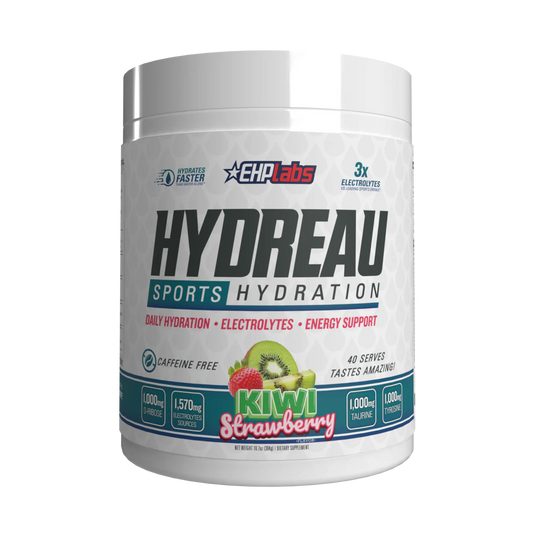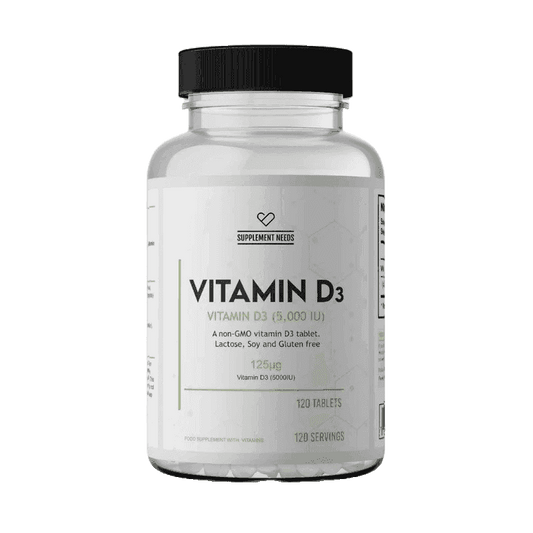Introduction: When “Wellness” Becomes Overkill
We all know someone who lines up capsules like it’s breakfast cereal — greens powders, pre-workouts, fish oils, BCAAs, magnesium, zinc, nootropics, multivitamins… and that’s before lunch. But when does supplementing for performance tip over into overkill?
If you’re lifting heavy, dieting, and trying to optimise your energy, it’s natural to reach for support. But can you take too many supplements? The short answer: yes. The better answer: it depends—on your dosage, stacking, timing, and even your liver.
In this two-part guide, we break down the science of supplement overload, explore risks you actually need to worry about, and give you smart, safe stacking strategies to stay in control of your health goals.
1. What Happens If You Take Too Many Supplements?
Let’s start with the obvious: your body isn’t designed to absorb an infinite number of nutrients all at once.
While your digestive system is efficient, it has its limits. Overloading it with pills, powders, and potions can lead to:
-
Reduced absorption (nutrient competition in the gut)
-
Liver strain (as excess compounds are metabolised)
-
Kidney stress (especially with high-dose creatine or fat burners)
-
Gastrointestinal upset (from overlapping ingredients)
Even “harmless” supplements like Vitamin C, magnesium, and zinc can cause diarrhoea, nausea, or bloating if megadosed.
2. Supplement Stacking Mistakes: Common Overlaps
Many of the biggest supplement mistakes aren’t from individual products—they’re from stacking too many products that do the same thing. Here’s where people go wrong:
❌ Stack 1: Multiple Pre-Workouts
Stacking a pre-workout with a fat burner and a pump formula? You might be taking in 600–800mg of caffeine, which can cause jitters, anxiety, and cortisol spikes. Look for overlapping stimulants like:
-
Caffeine anhydrous
-
Theobromine
-
Yohimbine
-
Synephrine
❌ Stack 2: Too Many Vitamins
Taking a multivitamin plus greens plus a separate B-complex? You may exceed your Tolerable Upper Intake Level (UL) for:
-
Vitamin A (risk of liver toxicity)
-
Vitamin D (calcium imbalances)
-
Niacin (flushing and liver strain)
Always check labels for %DV (daily value) and upper limits from NHS or EFSA.
3. Is It Bad for Your Liver?
This is a fair—and common—concern. The liver is your primary detox organ, processing anything you ingest, from food to alcohol to supplements. When you take excessive or poorly formulated stacks, your liver has to:
-
Break down and filter active compounds
-
Metabolise synthetic additives, dyes, and fillers
-
Deal with fat-soluble vitamin storage (A, D, E, K)
The result? Chronic overload could contribute to enzyme elevation or reduced function over time, especially if combined with alcohol or medication.
Supportive Strategy:
Consider liver-friendly nutrients like choline, NAC, and Hydreau by EHP Labs, which includes hydrating electrolytes that ease metabolic strain and support kidney-liver synergy.
4. Can Too Many Supplements Hurt Your Kidneys?
Kidneys filter your blood and excrete waste—so if you're pounding high-dose creatine, protein, or mineral-heavy stacks, you're adding to their workload.
Who’s Most at Risk?
-
People with pre-existing kidney conditions
-
Those taking NSAIDs or medication regularly
-
Heavy users of creatine or mineral-dense pre-workouts
-
Low-water drinkers
Kidney overload doesn’t usually happen overnight—but long-term stress can cause uric acid buildup or affect filtration.
Safe Creatine Use
If you’re using Naughty Boy Prime Creatine—which you should, because it’s one of the cleanest monohydrates on the market—stick to 5g/day, stay hydrated, and consider a rest month every 12 weeks.
5. How Many Supplements Is “Too Many”?
There’s no universal cap, but as a guide:
-
1–2 core performance enhancers (e.g. creatine, pre-workout)
-
1 multivitamin (with no megadoses)
-
1 recovery aid (e.g. hydration, magnesium, omega-3)
-
1–2 conditionals (sleep, gut health, immune support)
More than 5–7 daily supplements? You’re entering stack management territory, where conflicts, interactions, and diminishing returns become real.
6. Should You Cycle Off Supplements?
Yes—and here’s why:
-
Tolerance: Stims like caffeine and yohimbine lose effect
-
Receptor fatigue: Nootropics and adaptogens work better in pulses
-
Health check-in: Cycling off allows you to test what’s actually effective
-
Liver reset: Helpful if you’re using liver-metabolised products frequently
A good rule: Cycle off every 6–8 weeks for 7–10 days. Use that time to lean on hydration, sleep, and whole foods.
7. Smart Supplementing vs Blind Consumption
The smartest supplement stacks come from intentional choices, not Instagram reels.
Ask yourself:
-
What goal is this targeting?
-
Am I already getting this from food?
-
What overlaps or interactions exist with what I’m taking?
-
Is this brand tested, safe, and reputable?
Focus on outcome-driven choices—not the hype.
8. The Role of Hydration in Supplement Safety
Hydration is often overlooked when people stack supplements. But proper fluid intake is critical for:
-
Vitamin absorption (especially B & C)
-
Kidney filtering (to prevent toxicity)
-
Electrolyte balance (to avoid cramps, brain fog)
If you're taking multiple capsules, powders, and drinks daily, you’re also consuming a range of binding agents, acids, and excipients. Water helps flush them out.
Highlight Product:
EHP Labs Hydreau supports this with:
-
Coconut water powder
-
Magnesium, sodium, potassium, calcium
-
Added L-Tyrosine for cognitive balance
It’s not just a hydration drink—it’s a smart buffer between your supplement stack and your organs.
9. Is It Safe to Take a Multivitamin + Creatine + Pre-Workout?
In most cases, yes. But it depends on the formulation and the timing. Let’s look at what’s in each:
-
Multivitamin: High in B-complex, zinc, iron, vitamin D, magnesium
-
Creatine (e.g. Naughty Boy Prime Creatine): Muscle saturation, water retention, no overlap with micros
-
Pre-workout: Caffeine, beta-alanine, niacin, citrulline, sometimes overlapping B12, folate, etc.
Taking all three daily? You’re likely doubling up on some nutrients (especially B-vitamins and magnesium), and over time that can cause:
-
Gut irritation
-
Excessive flushing (niacin)
-
Mineral imbalances
If your multivitamin is low-dose or food-based, it’s less of an issue. But if it’s a clinical-grade blend plus greens powder plus fortified foods? You might want to scale back or stagger doses.
10. When Supplements Clash: The Underrated Danger
Not all supplements play well together. Some combinations blunt absorption, others amplify side effects.
Here are real examples:
-
Iron + Calcium: Compete for absorption in the gut
-
Zinc + Copper: Too much zinc inhibits copper absorption
-
Melatonin + Ashwagandha: Can overly sedate you
-
Caffeine + Yohimbine: Double stimulant spike, raises blood pressure
-
Magnesium + Vitamin D3: Must be dosed properly or you risk imbalance
If you’re stacking 7+ supplements, you're not a wellness guru—you’re a human chemistry experiment.
This is where hydration support, like EHP Labs Hydreau, becomes critical. It helps balance electrolyte load, aids excretion of excess water-soluble vitamins, and helps maintain mineral ratios.
11. How to Build a Safe Supplement Stack
You don’t need to go minimalist. But you do need to go intentional. Here’s a simple template:
|
Purpose |
Supplement |
Notes |
|
General health |
Multivitamin (e.g. Applied Nutrition Multi-Vitamin Complex) |
1/day with food |
|
Strength |
5g/day post-workout |
|
|
Hydration |
1 scoop during training |
|
|
Recovery |
Extra support after sweat-heavy days |
|
|
Performance |
Before tough workouts |
That’s 5 strategic supplements, all with minimal overlap, and all addressing a unique performance or recovery angle.
12. When to Take a Supplement Break
Signs it might be time to take 7–10 days off:
-
You’re feeling overstimulated, wired, or jittery
-
You’re relying on pills more than sleep or food
-
Your digestion is off (bloating, gas, constipation)
-
You're stacking without seeing results
-
You’re becoming mentally dependent on your stack
Remember: supplements supplement. They’re not a replacement for basic fundamentals.
A short break allows your receptors to reset, your organs to breathe, and your brain to recalibrate what actually works for you.
13. FAQs: Supplement Overload, Safety, and Stacking
1. What happens if you take too many supplements in one day?
You may experience nausea, diarrhoea, headaches, or nutrient competition. Fat-soluble vitamins (like A or D) can accumulate and cause toxicity over time. It’s not just quantity—it’s how they interact.
2. Is it bad to take a pre-workout, creatine, and a multivitamin?
Not necessarily. But be aware of stimulant content, overlapping B-vitamins, and niacin flushing. Stick to trusted brands and spread them out across the day if needed.
3. Can too many supplements damage your liver or kidneys?
Yes—especially if you already have underlying conditions, or if you're taking high doses of fat-soluble vitamins, excess protein, or overusing stimulants. Hydration and moderation are key.
4. How many supplements should I take at once?
There’s no magic number, but most people do well with 3–5 strategic supplements. If you’re taking 8+, you need to monitor ingredient overlap, dosages, and your daily water intake.
5. Should I stop taking supplements occasionally?
Absolutely. A 7–10 day “off cycle” every 6–8 weeks helps your body reset and prevents dependency, tolerance, and organ stress. It also gives you a chance to see what actually works.





